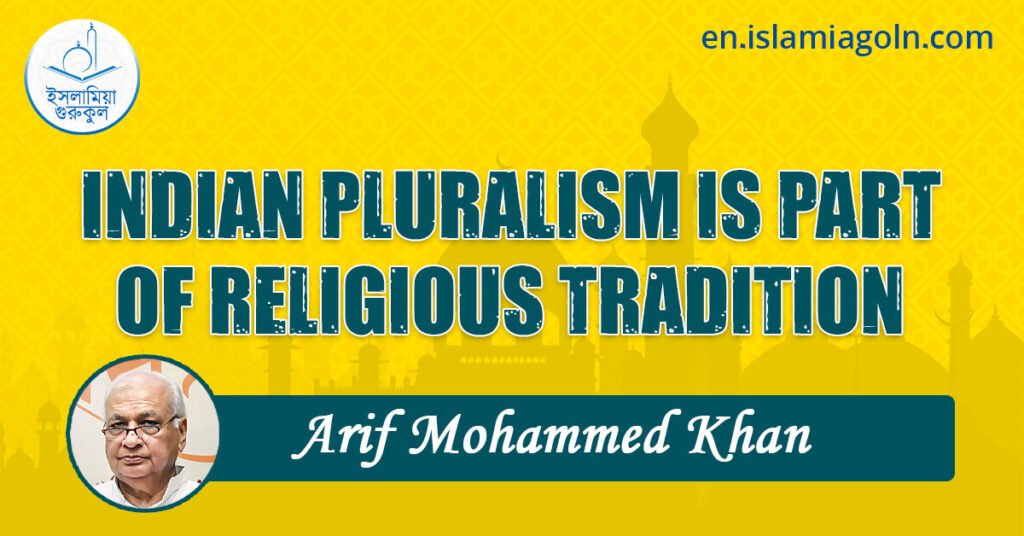Today is Our Focus: INDIAN PLURALISM IS PART OF RELIGIOUS TRADITION
INDIAN PLURALISM IS PART OF RELIGIOUS TRADITION
What is religion (dhamma)? The Brhadaranyaka Upanishad responds W to this question with a thunderclap, da da da, meaning dama, daan, and Dayaa, self-control, charity and compassion. Indian tradition holds these values as the three basic ingredients of religion. Swami Vivekananda has defined religion as a manifestation of the divinity that already exists in man. He says:
Each soul is potentially divine. The goal is to manifest this divine within, by controlling nature external and internal. Do this either by work or worship or psychic control or philosophy, by one or more or all of these and be free. This is the whole of religion. Doctrines or dogmas or rituals or books or temples or forms are but secondary details.
It is this weltanschauung (worldview) of the human soul that has permeated the Indian religious tradition for centuries and has led to the recognition of the right of each and every individual to approach the Creator in a manner and mode of his or her choice. As Swami Ramkrishna Paramhansa said many years ago, ‘Yat mat tat path’ (to each individual is his way)
The many names given to the Divine and the paths pursued to reach the Divine have been likened to the streams that have different places as their source but finally mingle in the waters of one great sea. Similarly people. prompted by their unique dispositions, take different paths that ultimately lead to one cosmic reality.
The concept of one God and many paths, and One God permeating all souls is known as Ekeshwarwad or Advat (monism or non-duality) Traditions like the Bhakti movement, which strive to merge the finite with the inexhaustible infinite, are the logical products of a belief in non-duality.
Indian pluralism emphasises universal acceptance. The tolerance of diverse religious traditions is not a modern day innovation. Instead, it is deeply rooted in our religious and spiritual ethos and reflected in the lives of great spiritual leaders of India.
We have an interesting story about Shankaracharya, the great teacher of advaita, who is given credit for renewing Hinduism in the eighth century. When in Varanasi, the Acharya used to go for a dip in the Ganges every morning.
One day he found a Chandal (an untouchable) standing and asked him to move off his path. The Chandal enquired whom he was asking to move, the body or soul. This remark awakened Shankaracharya to his belief in advaita and he fell at once at the feet of Chandal as if he were his guru. It was after this incident that he composed the famous Manish Panchaka of five shlokas with the refrain. ‘He who has learnt to look upon all as Brahman is really my guru, be he a Brahmin or a Chandal.”
There is another fascinating story about Swami Ramkrishna Paramhansa, a great advaita teacher of the nineteenth century. He was very fond of ice cream and one day he heard a vendor calling out in the street The vendor was summoned, but when he found the vendor to be a Muslim, he instinctively decided not to buy the eatable from him. After the vendor left, his strong advaita consciousness stung Swamiji to the quick-he recognised his fall from that supreme height in his behaviour by wounding the feelings of a Muslim vendor. He immediately rushed to call him back and ate the ice cream in the vendor’s presence with great joy.
Unlike the western world. Indian pluralism has had no occasion to struggle against religion. Instead, it is nourished and cherished by religion itself.
See more:

